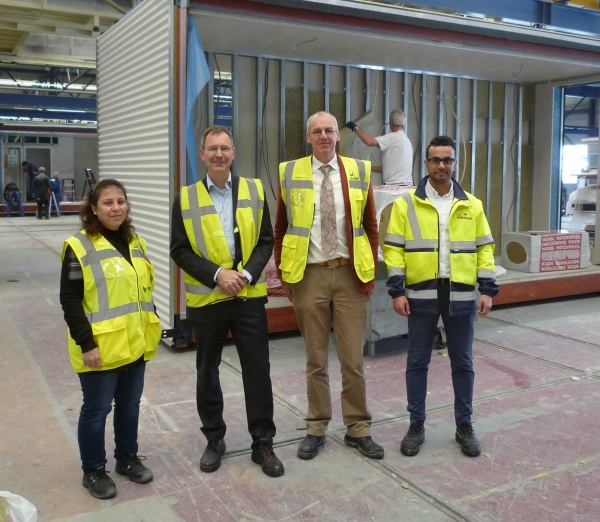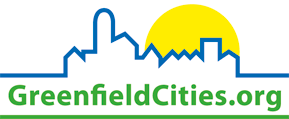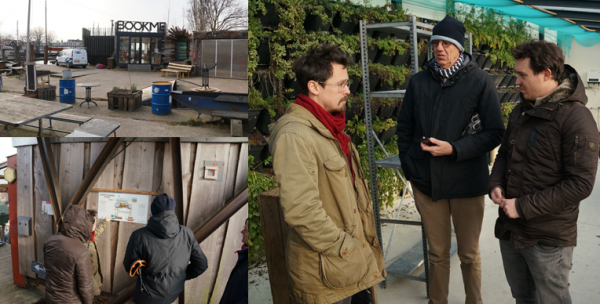 As part of the Netherlands Government Energy Transition Facility, GFC provides technical assistance to the Lebanese Ministry of Energy and Water / LCEC for the development of Guidelines for the implementation of best practices for energy efficient renovation procedures, technologies and materials. Deliverables are to be used in current and future renovation and reconstruction processes, trainings for multiple stakeholders, and preparation of other relevant materials including those that can be used for legislative and regulatory purposes. The project was kicked off on December 16th and will be completed in March 2021.
As part of the Netherlands Government Energy Transition Facility, GFC provides technical assistance to the Lebanese Ministry of Energy and Water / LCEC for the development of Guidelines for the implementation of best practices for energy efficient renovation procedures, technologies and materials. Deliverables are to be used in current and future renovation and reconstruction processes, trainings for multiple stakeholders, and preparation of other relevant materials including those that can be used for legislative and regulatory purposes. The project was kicked off on December 16th and will be completed in March 2021.
Geen categorie
De Ceuvel inspires GreenfieldCities
In the last cold winter week of 2018, GreenfieldCities visited De Ceuvel in Amsterdam. The site describes itself as a clean-tech ‘playground’ for innovation and creativity and a showcase for sustainable circular urban development. The former shipyard has been transformed by and for a community of volunteers with a passion for circularity.
De Ceuvel has areas for experiments related to urban food production and water re-use as well as a café, a hotel and meeting rooms. What is special about the site is that all infrastructure has been installed above the ground due to digging restrictions on the polluted shipyard. In order to be able to conduct experiments, De Ceuvel has a special arrangement with the municipality of Amsterdam to function as a partially regulatory exempt area. This fosters innovation, and fuels the creativity and sense of responsibility and ownership of the community.
We have had the opportunity to learn more about the concept, innovations and experiments through an inspiring meeting and site tour with Chander van der Zande, consultant of Metabolic, and member of De Ceuvel’s board. It was an inspiring afternoon that has allowed us to learn, to identify similarities with- and differences between De Ceuvel and the Campus in Jordan, and to search for points of collaboration.
In the meantime @GreenfieldCities
We are inching closer to significant support from the Dutch Ministry of Foreign Affairs. In the meantime we completed internal workshops on the GFC campus in Jordan. We refined the Campus goals, defined the desired relationship with Mafraq town, and studied Jordanian sector policies.
These workshops also aim to prepare our Syrian and Eritrean volunteers for their future roles as full-fledged employees. This is very exciting as our most talented volunteers will get an official Dutch working contract with us. Leaving the Dutch governmental social payment (“uitkering”) system is a major step for our volunteers. It boosts their independence, self-confidence and professionalism. As GreenfieldCities we are very proud and grateful to facilitate the professional and personal growth of our team members. We invest a lot of time in continuous capacity building, e.g. effective writing in English, financial accounting, or project management skills.
Some of our volunteers have even gained the confidence and skills to establish their own business or to land a good job at another Dutch employer. That is why we proudly say goodbye to one of our early stage volunteers. Ghaz, our Junior Marketing Manager, is going for a new professional adventure. We wish him the best of luck in his future career.
On the other hand we are happy to welcome Hedzer Roodenburg Vermaat. He will be our Country Director, managing our activities in Jordan. Hedzer will build his own local new team of Jordanians and Syrian refugees. This means that we will recruit new members (preferably female) for our team in Jordan! Vacancies will be available on our website soon.
GreenfieldCities Engineering Team Visits Production Facility Pop-Up Buildings

Within the framework of the preparations for the first project in Jordan, the engineering team of GreenfieldCities paid a company visit to De Meeuw. This company is an industry leader in high quality flexible building solutions. GreenfieldCities have chosen to kick things off using a pop-up concept. This has several benefits. Results can be achieved quickly. And having the initial design and built phase in Europe helps to de-risk those activities and secure certain pre-set sustainability performance levels. Ultimately, this approach also benefits the local society and economy. By establishing a presence in Jordan quickly we can start focusing faster and better on development of permanent infrastructures and buildings and local job creation.
De Meeuw’s concepts are designed and constructed to have second and third lives, and feature flexible lay outs and high energy and water usage efficiencies. De Meeuw offers buy back guarantees and already reaches 60% re-use of materials and components. Their goal is to up that number to 90%. Last but not least, De Meeuw are used to work in co-creation processes which fits the GreenfieldCities philosophy very well.
Germany structurally earmarks almost 0,5% of GDP for refugees
Germany structurally earmarks almost 0,5% of GDP refugees
The German magazine “”Der Spiegel” reports that the German Finance Ministry has budgeted that managing the refugee crisis until 2020 will cost Germany approximately €94 billion. That is more than €1.100 per German citizen or around 0.5% of GDP.
The German calculations show at least two things. They acknowledge that the refugee challenge is tough and structural. One of the assumptions is that after 5 years, almost 50% of newcomers still will not have found a job. The calculations also seem to indicate that the Germans want to give a long term commitment to curbing this crisis.
GreenfieldCities is also based on providing a long term commitment to refugees, but stresses the importance of improving conditions in the refugee home regions. That offers much better opportunities to the refugees themselves and regional investors, it creates more economic value as well as environmental benefits and helps to reduce the burden for European tax payers.
See article (in German)







